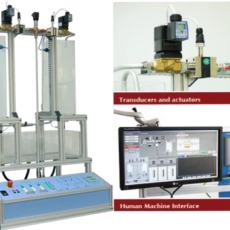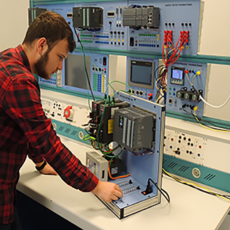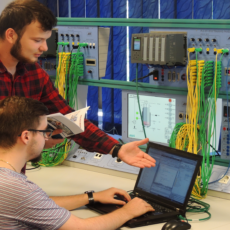Description
In connected factories, as the core of the Industry 4.0 paradigm, effective management and knowledge extraction from collected field-level data is a critical challenge. The course provides a systematic approach to artificial intelligence techniques for managing large data sets, building and improving predictive models for solving supervised and unsupervised learning problems. This leads to the definition and solution of key engineering and management problems through the ability to control and parameterize the design decisions behind high-level machine learning tools. Core topics include: data science methodology, data management and structuring, modeling techniques for regression and classification, model selection, validation, and implementation. Practical activities use modern open software tools and libraries such as the Google Colab development environment and Python packages scipy/numpy, scikit-learn, tensorflow/keras. These include relevant examples for predictive maintenance of equipment, energy forecasting and anomaly detection and improving the performance of manufacturing lines in industry.
Target group: Electricians and engineers with application experience
Content:
- General concepts, terminology and problem classification for artificial intelligence and machine learning in industry applications
- Public datasets, data quality requirements and pre-processing methods
- Exploratory Data Analysis (EDA) for statistical and engineering characterisation of industrial data
- Supervised learning algorithms
- Unsupervised learning algorithms
- Data analysis results visualization and KPI definition and reporting
- End-to-end industrial artificial intelligence use cases in predictive maintenance of drives systems and energy efficiency of production lines
- Introduction to Python-based tools and development environments (Jupyter Notebook/ Google Colab)
- Dataset retrieval, data streaming and interoperability with industrial systems e.g. IoT platforms (Node-RED)
- Algorithms for supervised learning: regression methods, decision trees, neural networks for prediction and classification
- Algorithms for unsupervised learning: k-Means, hierarchical clustering, dimensionality reduction (PCA, SVD)
Objectives:
During this course the atendees will acquire knowledge and practical abilities related to:
- Introduction to Python-basd tools and development environments (Jupyter Notebook/ Google Colab)
- Dataset retrieval, data streaming and interoperability with industrial systems e.g. IoT platforms (Node-RED)
- Algorithms for supervised learning: regression methods, decision trees, neural networks for prediction and classification
- Algorithms for unsupervised learning: k-Means, hierarchical clustering, dimensionality reduction (PCA, SVD)
- Performance metrics for model selection/tuning
Duration: 4 days
Note: Enrollment and participation in this course requires programming knowledge in the field of industrial automation




